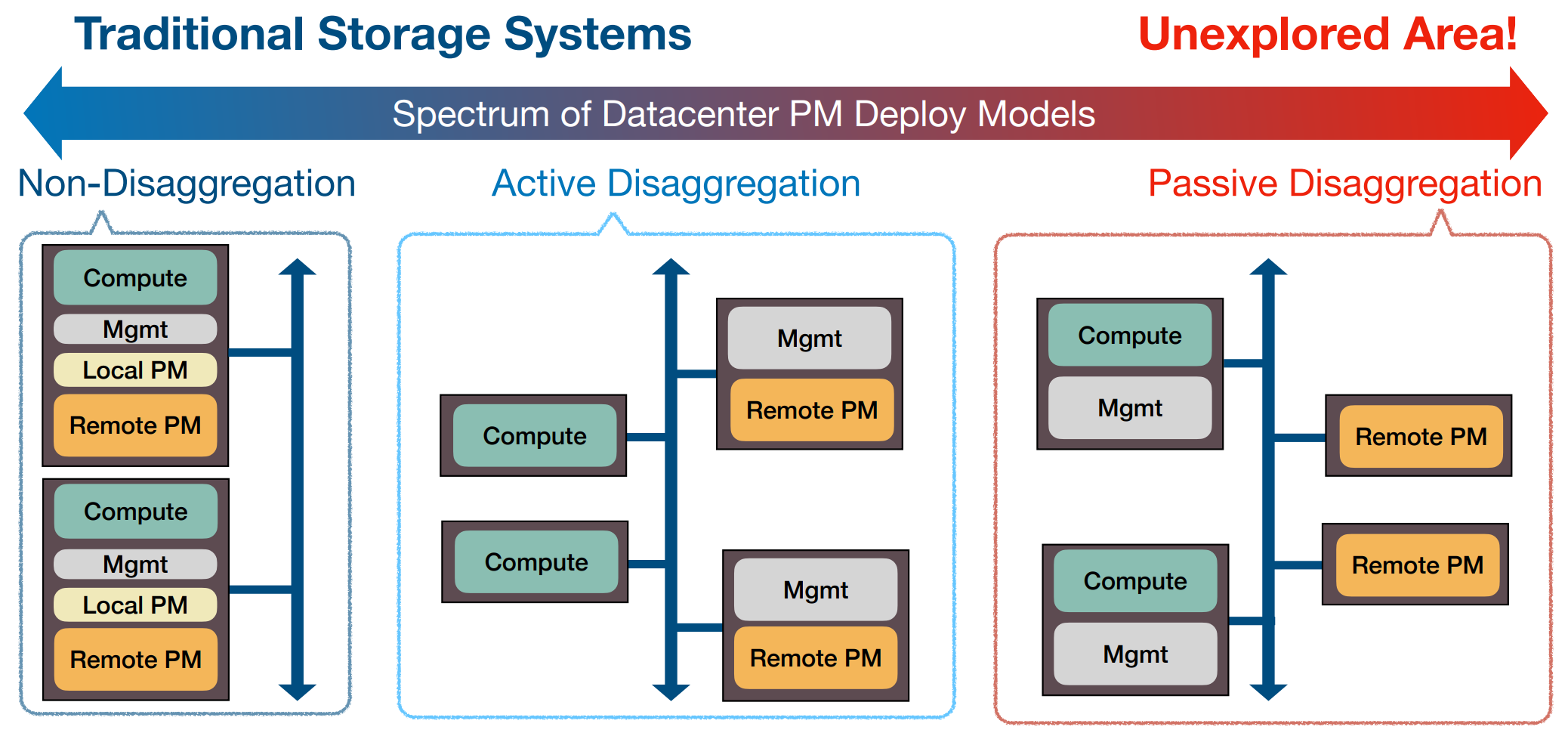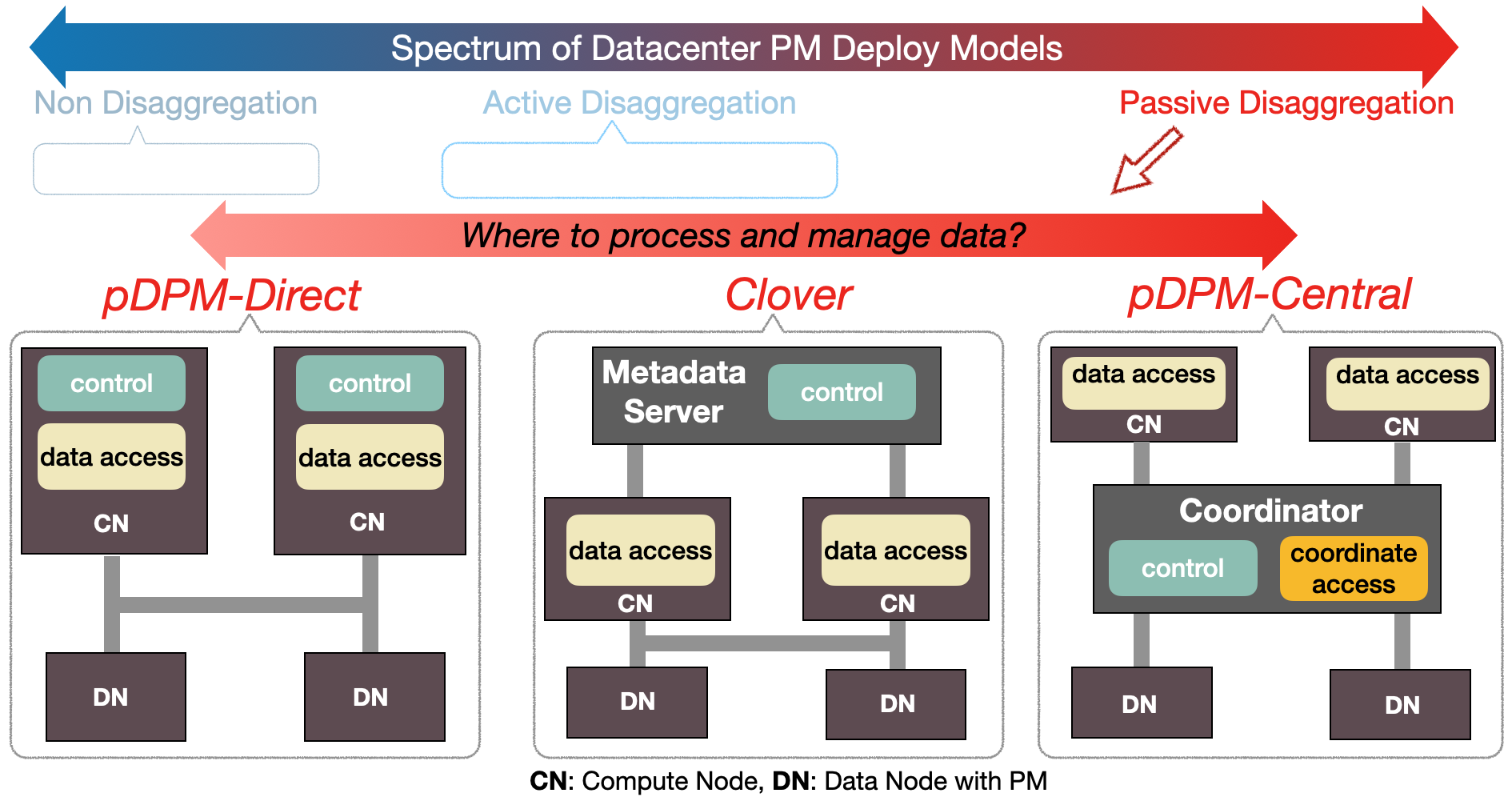[USENIX ATC 2020 Paper] [Slide] [Slide-Short] [Talk]
We explore an alternative approach of building Disaggregated Persistent Memory (DPM) by treating storage nodes as passive parties that do not perform any data processing or data management tasks, a model we call Passive Disaggregated Persistent Memory, or pDPM.
pDPM lowers owning and energy cost, also avoids storage node being the processing scalability bottleneck. pDPM is an instance of passive disaggregation approach and has largely been overlooked in the past. Our work does a thorough exploration of this area.
Based on where to process and manage data, we build three pDPM-based key-value stores: pDPM-Direct, pDPM-Cental, and Clover. All three pDPM systems run on top of userspace libibverbs, no special kernel modifications are needed.
Coming soon.
Shin-Yeh Tsai, Yizhou Shan, Yiying Zhang.
Code was developed by Shin-Yeh Tsai at 2018-2019 during his time at Purdue University.
To cite our pDPM paper, please use the following bibtex:
@inproceedings {ATC20-pDPM,
title = {{Disaggregating Persistent Memory and Controlling Them Remotely: An Exploration of Passive Disaggregated Key-Value Stores}},
author = {Shin-Yeh Tsai and Yizhou Shan and Yiying Zhang},
booktitle = {2020 {USENIX} Annual Technical Conference ({USENIX} {ATC} 20)},
year = {2020},
url = {https://www.usenix.org/conference/atc20/presentation/tsai},
publisher = {{USENIX} Association},
month = jul,
}

